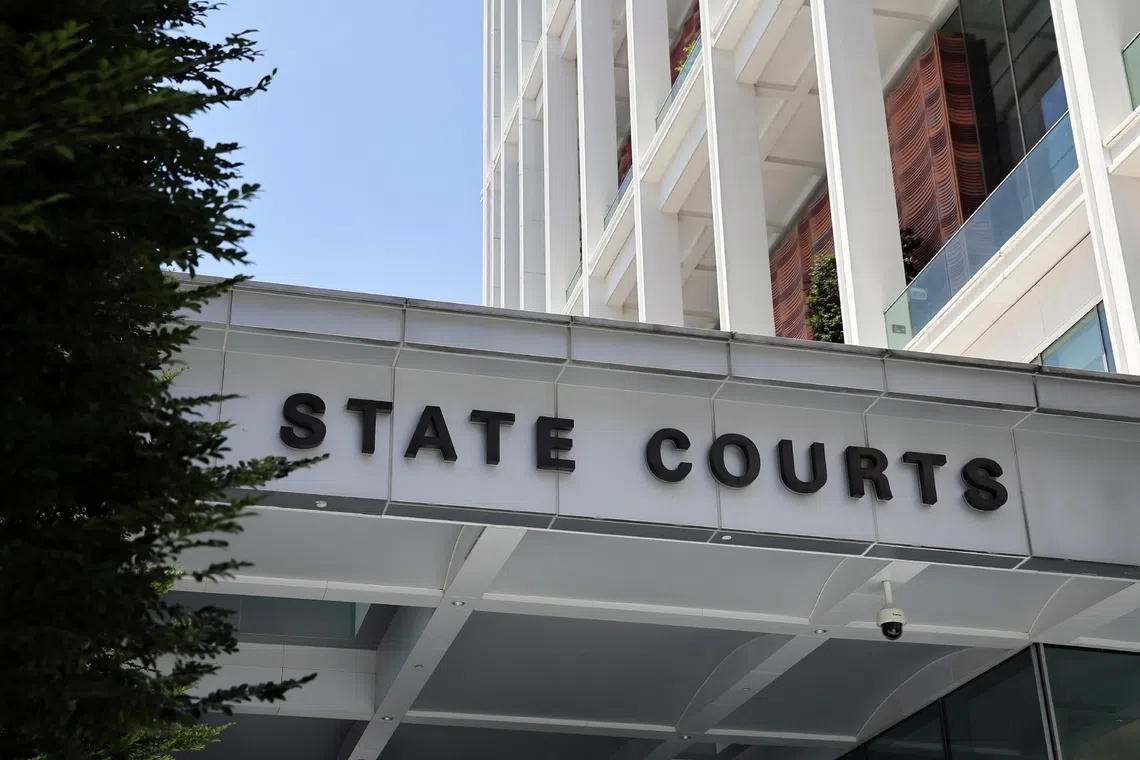Jail, caning for man banned from Singapore who returned with false identity and started a family
Sign up now: Get ST's newsletters delivered to your inbox

On Oct 2, Muhammad Salman, 46, whose original name is Malik Irfan Arshad, was sentenced to three years’ jail and three strokes of the cane.
ST PHOTO: KELVIN CHNG
Follow topic:
- Muhammad Salman, banned from Singapore in 1998, returned in 1999 under a false identity and obtained citizenship via false statements.
- He was sentenced to three years' jail and three strokes of the cane, and his citizenship status will be reviewed by ICA.
- ICA has enhanced border measures since 2004 to detect individuals re-entering with false identities, using biometric screening.
AI generated
SINGAPORE – A convicted immigrant who was banned from re-entering Singapore in 1998 but came back the next year under a false identity and started a family here, has been sentenced to jail and caning.
On Oct 2, Muhammad Salman, 46, whose original name is Malik Irfan Arshad, was sentenced to three years’ jail and three strokes of the cane.
Salman had pleaded guilty on Sept 17
The Immigration and Checkpoints Authority (ICA) said on Oct 2 that it would review Salman’s Singapore citizenship status since he has been convicted and sentenced.
Deputy Public Prosecutor Zhou Yihong had said Salman was convicted of cheating and providing false information to a public servant in 1998.
The then Pakistani served more than two months in jail and was barred from re-entering Singapore upon his conviction.
But on Nov 19, 1999, Salman decided to return to Singapore under a new identity despite knowing that he had been permanently banned from entering the country.
Charge sheets show that Salman had also made false declarations and statements on Dec 30, 2002, and Aug 10, 2007, when he applied for permanent residency (PR) and Singapore citizenship (SC).
Both applications were approved.
ICA said that following his arrest by the police for affray in 2021, investigations revealed Salman’s earlier conviction and deportation.
An ICA spokesman said Salman’s re-entry was not detected as the authority had started registering fingerprints of deported individuals only in 2004, and screening fingerprints of foreign visitors in 2006.
He said ICA now has in place enhanced measures to safeguard Singapore’s borders and screen PR and SC applicants.
The spokesman said: “The biometrics of first-time visitors are captured and compared against records in our database. Individuals who attempt to re-enter Singapore using another identity or passport will be detected.”
He added that applicants for PR and SC will also have their biometrics screened to determine if they have past cases of concern.
The spokesman said ICA takes a very serious view of individuals who provide false information or conceal material facts during their applications for citizenship or other immigration facilities like long-term immigration passes.
“We will deal with them firmly. This may include depriving them of or revoking their citizenship or other immigration facilities,” he said.
Salman’s lawyer, Mr Teo Choo Kee, said his client was remorseful for a rash decision he had made a long time ago, and that he had “employed the wrong method” to seek a better future in Singapore.
Mr Teo added that Salman felt he had to continue with the lie because of his family.
“Having come to Singapore under false identity, he started working and got married. It was in these circumstances that he felt he had little choice but to continue this facade, especially after starting a family. One thing led to another and he went on to apply for permanent residency and citizenship,” said Mr Teo.
For entering Singapore despite being barred, Salman could have been jailed for between two and four years, and fined up to $6,000.
He could also have been jailed for up to two years, fined up to $1,000, or both, for making false representations to induce the minister to grant him citizenship.


